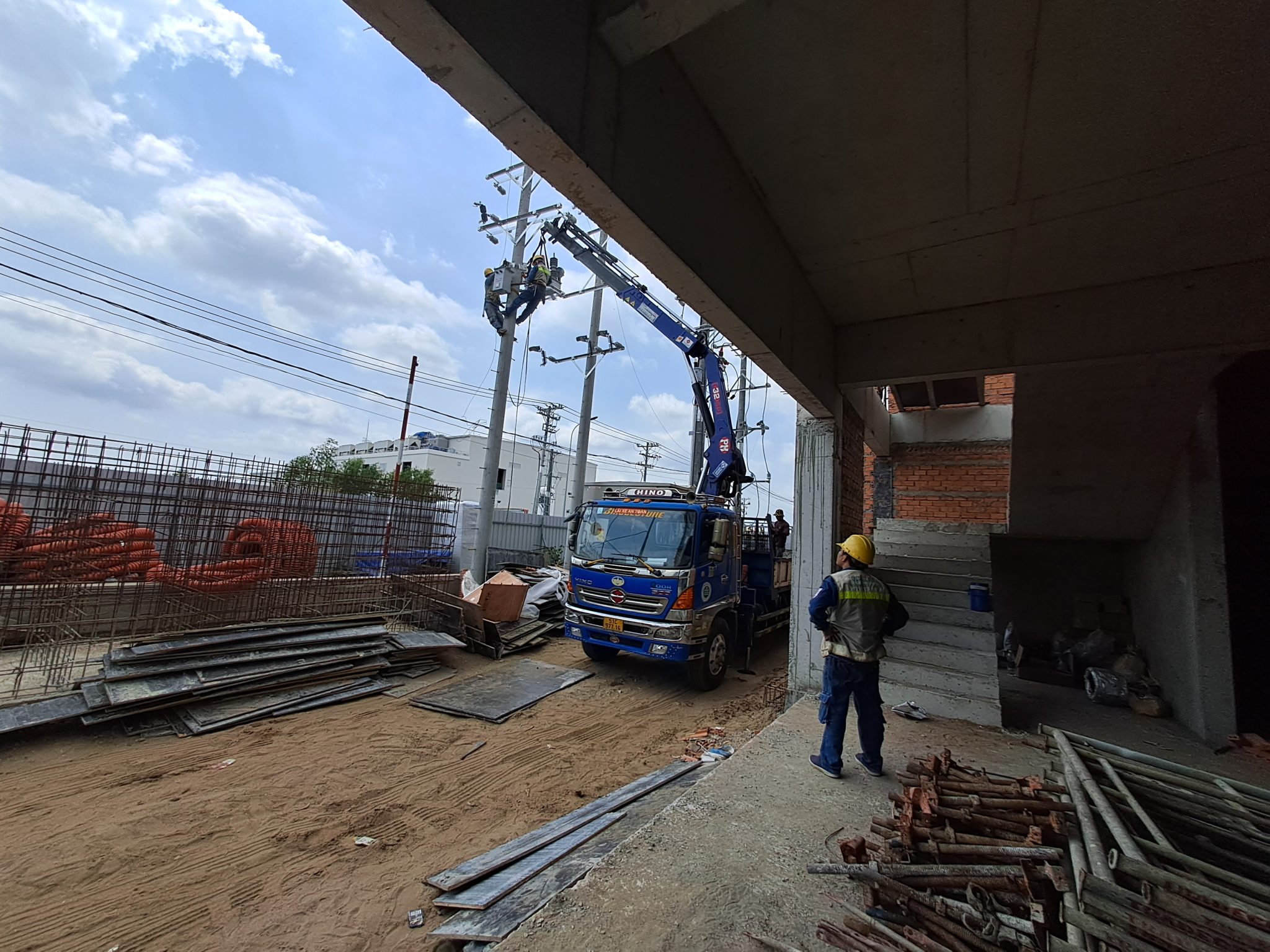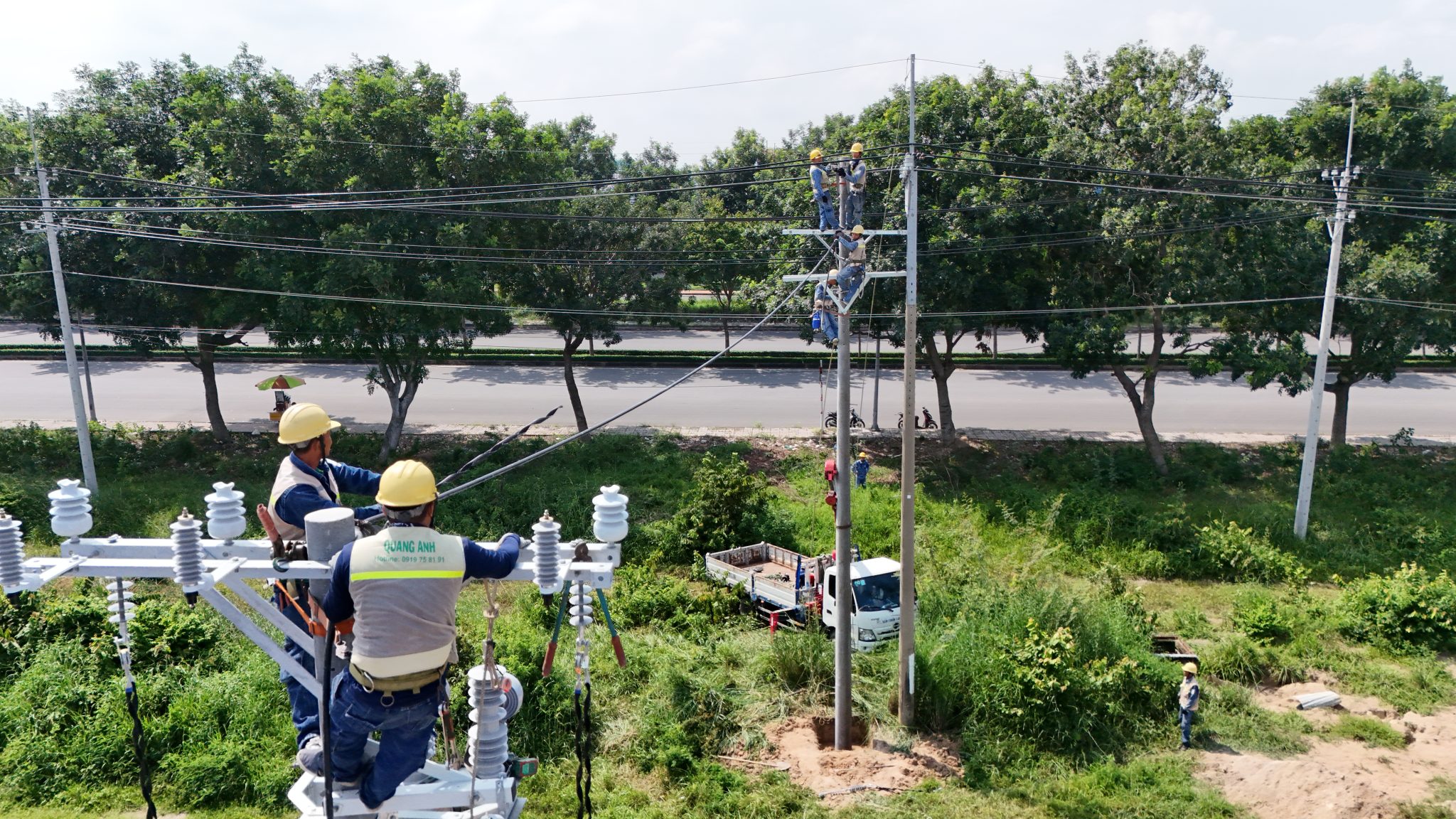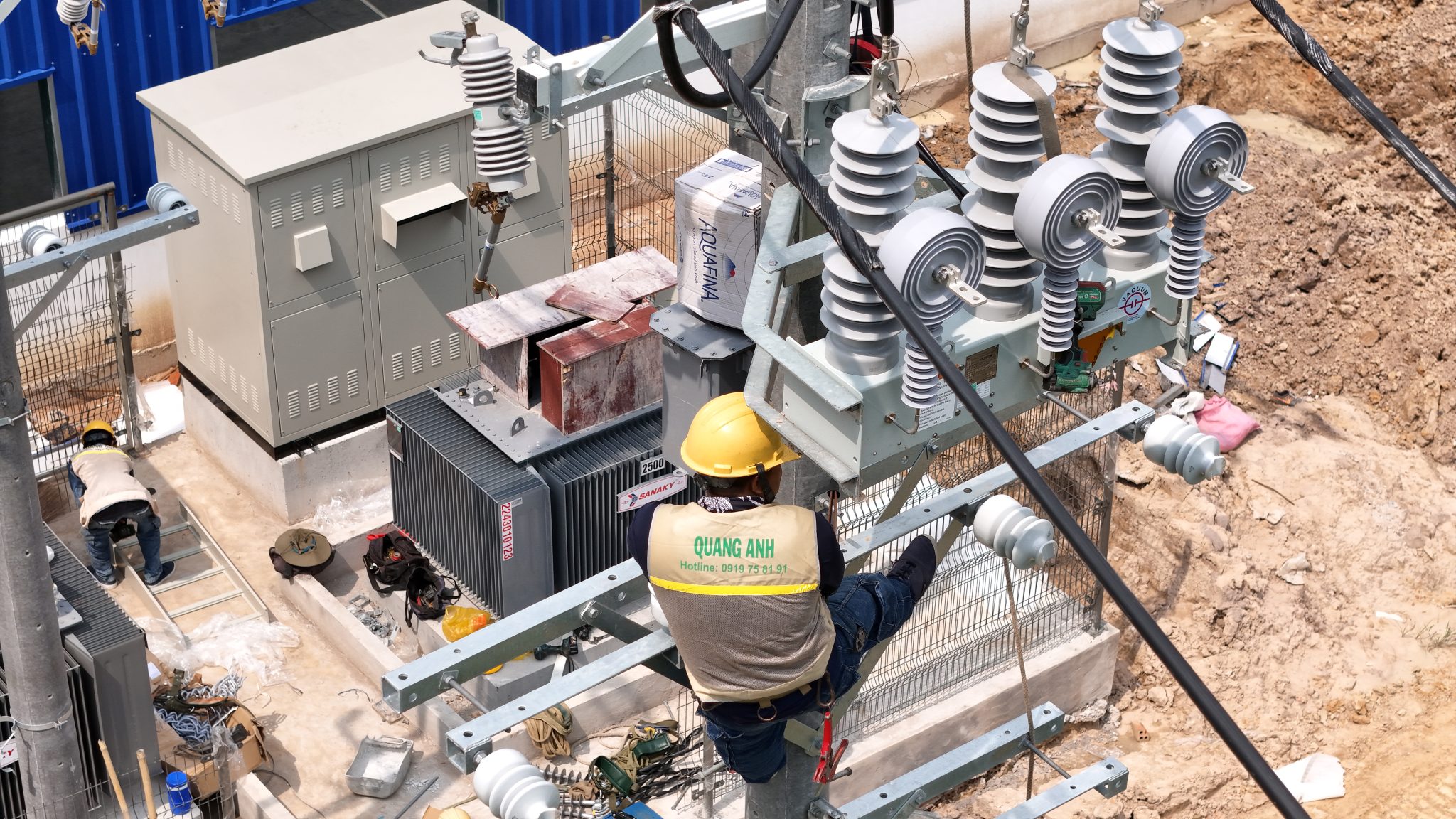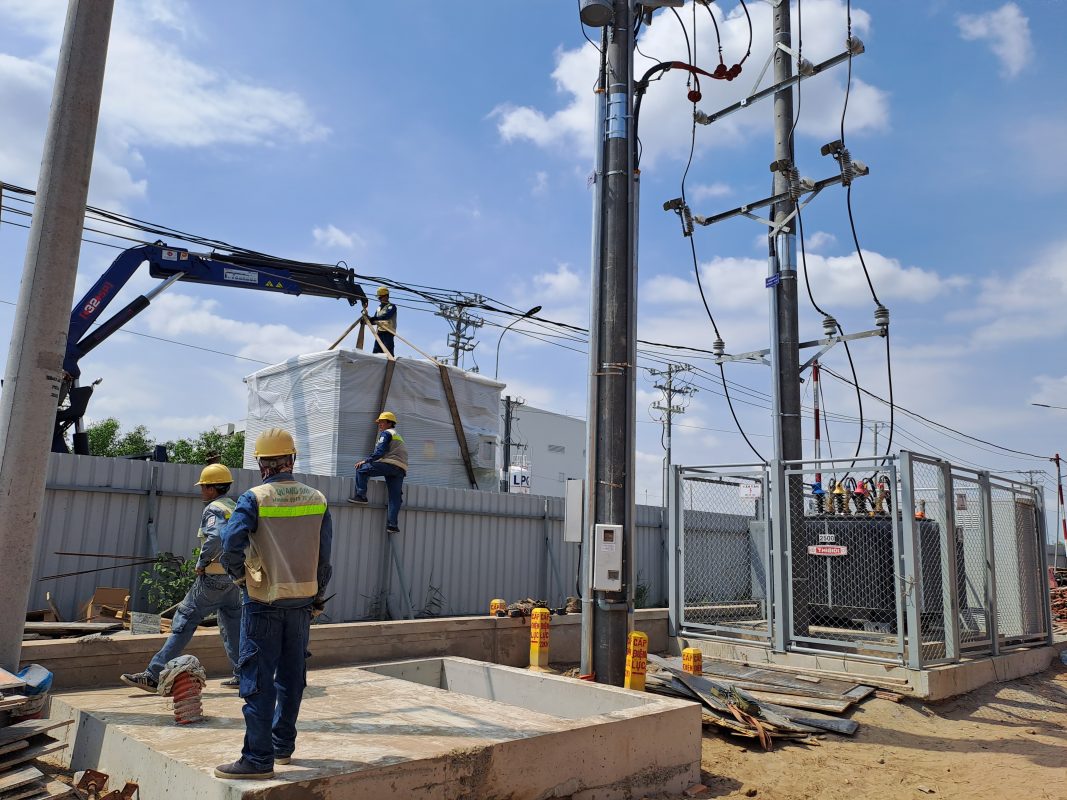The price of a 60kW charging station varies based on capacity, technology, and installation location. It can generate monthly revenue of VND 10 million, after covering operational costs around VND 5.5-6 million.
Costs and Revenue from a 60kW Charging Station
The pricing for a 60kW station is influenced by factors like power capacity, technology, and installation site. A 60kW charger can yield over VND 10 million in monthly income, after accounting for losses and taxes. Fixed costs such as security, cleaning, renting premises, and maintenance range from VND 5.5 to 6 million monthly.
The 60kW charging station is a key component of modern electric vehicle infrastructure. Setting up such a station often costs around VND 278 million for the charger unit itself. Additional investments involve installing a transformer station, with costs ranging from VND 300 to 500 million, alongside monthly premises rental, fluctuating between VND 10 and 50 million. Construction costs for components like electrical systems, distribution panels, and shelters also need precise budgeting.
Despite obstacles like parked cars not charging or station occupancy issues, a 60kW station’s charging efficiency is around 40%, compared to a 60% usage rate daily. Nevertheless, these stations are particularly suited for fast charging needs in public areas, businesses, or highways. Their ability to charge from 0 to 80% in 30-60 minutes supports a driving range of 100-150 km after a quick charge session.
In terms of revenue, a station can bring in over VND 10 million each month, net of losses and taxes. Yet, maintaining operations requires fixed costs, including security, cleaning, and upkeep, totaling between VND 5.5 and 6 million monthly.
From this data, it’s evident that investing in a 60kW charging station promises stable profits but demands careful consideration of initial costs, especially in selecting installation location and scale. Investors need detailed financial analysis to guarantee project profitability.

Technology and Charging Performance
The 60kW station employs rapid and safe charging technology, with a DC output of 200–1000 V. It maintains stable operation within a 30–50°C temperature range, integrating overload, overheating, and short-circuit protection features. Charging a vehicle from 0 to 80% with a 50-70 kWh battery takes only 30-60 minutes.
Progressive strides in charging technology are reshaping the market by enhancing speed, performance, and convenience of modern charging systems. A notable breakthrough is the adoption of Gallium Nitride (GaN) technology, enabling the creation of compact, powerful chargers. GaN not only boosts charging speed but also significantly reduces heat compared to conventional silicon chargers. Pioneer brand Anker has introduced GaN in USB-C chargers, optimizing charging speeds for diverse devices from Apple Watch to MacBook.
Ultra-fast charging is increasingly becoming a reality with advancements in lithium-ion battery technology, like those from StoreDot, enabling full EV charging in five minutes – comparable to refueling at a gas station. This innovation is also being explored for devices like phones, drones, and e-bikes, allowing 80% charges in just five minutes. Giants like Daimler and Samsung are heavily investing in developing this ground-breaking technology.
Solid-state batteries, another promising option, are being rapidly developed by companies such as BYD and Toyota, aiming for under-10-minute charging times. These batteries not only enhance charging speed but also significantly enhance safety compared to traditional lithium-ion technology.
Accompanying advanced battery technologies, high-voltage platforms from 800V to 900V have been introduced in new electric vehicle models, optimizing fast charging efficiency. Moreover, intelligent charging ecosystems from brands like Anker Prime offer numerous features, including device auto-recognition, real-time status updates, and smart cooling functionalities, improving the overall user experience.
The general trend in charging technology focuses on boosting efficiency and safety while adding smart features. This not only optimizes the user experience but also meets sustainability expectations of global energy systems.

Standards and Applications for Public Charging Stations
Public charging stations are implementing standardized charging fees. For instance, VinFast stations charge 3,858 VND/kWh, a reference rate for 60kW stations. This helps investors set reasonable charging prices and optimize operational strategies.
To meet the growing demand of the electric vehicle market, Vietnam has been promoting the development of national technical standards (QCVN) and Vietnam standards (TCVN) specifically for electric vehicle charging stations. These standards oversee equipment quality while ensuring safety, international compatibility, and efficient operation of public charging systems.
Public Charging Standards
-
Voltage and Technical Safety: According to QCVN drafts, EV charging stations must handle maximum voltage of 1000V (AC) or 1500V (DC). Devices must incorporate protective measures against electric shock, overload, overvoltage, overheating, and fire to safeguard users.
-
Environmental Resistance: Charging points must be designed to meet dust, water (IP), and impact (IK) protection standards, ensuring durability and stability under harsh weather conditions.
-
International Compatibility: Vietnam’s standards align with international norms like IEC 61851 to ensure synchronization and compatibility with electric vehicles worldwide.
-
Comprehensive Standard Framework: According to the Ministry of Science and Technology, 11 Vietnamese standards encompass EV charging stations, covering installation, operation, maintenance, safety, and user connectivity.
-
Measurement Systems and Accessories: Detailed regulations on electricity metering, switching units, sockets, and plugs help create a full ecosystem for public charging stations.
-
Conformity Certification: Charging stations must undergo compliance checks, obtain conformity certification, and be marked before usage.
Public Charging Applications
Implementing and adhering to unified charging station standards will catalyze the sustainable development of the electric vehicle infrastructure, driving green transportation in Vietnam. These public charging standards are crucial for establishing safe and efficient installation and operation systems.
Standardized charging networks not only deliver convenient and reliable user experiences but also optimize payment capabilities and ensure precise electricity consumption measurement. Standards governing communication and electronic compatibility between stations and vehicles enhance charging efficiency and reduce incidents, promoting the sustainability of electric transport solutions.
Overall, developing and implementing these standards marks a significant step for Vietnam in joining the global green transportation movement, building safe and efficient electric vehicle infrastructure.

The 60kW charging station offers significant technical and investment benefits with reasonable operational costs and rapid charging capabilities. This solution is optimal for future electric vehicle infrastructure development.
Contact QuangAnhCons via Hotline: +84 9 1975 8191 for consultation on effective charging station solutions.
QuangAnhCons provides consultancy and deployment services for 60kW charging stations, ensuring investment efficiency and optimal operational costs.
[contact-form-7 id="7239967" title="Contact form 1"]


Related Posts
Tay Ninh Solar Power Planning: Technical Framework, Grid Interconnection, and Rollout Roadmap
Technical overview of solar planning in Tay Ninh: irradiation, grid capacity, permitting, design, operations, and [...]
Dec
Binh Duong Solar Planning: Regulatory Framework, Grid Interconnection, and an Implementation Roadmap for Factories and Industrial Parks
An overview of Binh Duong solar planning: legal framework, interconnection, design, risk management, and an [...]
Dec
Solar Farm Repair: O&M Workflow, IV Curve Diagnostics, Thermography, Inverter Service and Utility-Scale Safety
A utility-scale solar farm repair plan centered on O&M, IV curves, thermal imaging, inverter service, [...]
Dec
Dong Nai Solar Power Plan 2023–2025: Tri An 1,029 MW, Grid Upgrades and the DPPA Pathway
A complete look at Dong Nai’s solar power plan: Tri An 1,029 MW, irradiation potential, [...]
Nov
Quang Ngai Solar Power Plan 2024–2030: Legal Framework, Irradiance Potential, and Development Roadmap
A complete look at Quang Ngai’s solar power plan: capacity targets, irradiance (PVout), development zones, [...]
Nov
Solar Damage Assessment Services: On-Site Procedures, EL/IV/Thermography Testing & Compliance with Standards
Discover IEC/UL/NEC standard solar damage assessment processes: on-site evaluation, EL and IV curve testing, thermal [...]
Nov
Comprehensive Package Estimate for a 1800MVA 500kV Substation: Scope, Configuration 3x600MVA, Standards and Timeline Management
An overview of the 1800MVA 500kV substation estimate: construction scope, configuration 3x600MVA, GIS/AIS, SCADA, standards, [...]
Nov
Factory Electrical Systems: Comprehensive Design and Implementation Guide
Discover the detailed and safe process of factory electrical systems design and implementation. [...]
Oct
Blueprints Required for Factory Construction Permits
Discover the necessary blueprints in factory construction permit applications, from floor plans to electrical and [...]
Oct
What Are the Requirements for a Factory Construction Permit? A Comprehensive Guide
Explore the documentation and steps needed to secure a factory construction permit for streamlined project [...]
Oct
Factory Construction Permit Procedures in Vietnam: Essential Guidelines and Documents
Learn the procedures for securing a factory construction permit in Vietnam, focusing on document preparation [...]
Oct
Key Steps in the Factory Construction Process
Discover the essential steps and requirements for building factories. [...]
Oct
Comprehensive Electrical Substation Solutions by Quanganhcons
Discover the cutting-edge electrical substation solutions offered by Quanganhcons for industrial applications. [...]
Oct
Investment Costs for a 1MWp Solar Power System and Influencing Factors
Explore the investment costs for a 1MWp solar power system in Vietnam and the influencing [...]
Sep
QuangAnhcons: Elevating Wind Energy Solutions
Explore QuangAnhcons' leadership in wind energy and renewable solutions in Vietnam. [...]
Sep
Electrical Contractor Strategies at Becamex Industrial Park
Discover the strategic advancements and partnerships of the electrical contractor at Becamex Industrial Park. [...]
Sep
Investment Insights for 1MW Wind Energy in Vietnam: Costs and Opportunities
Discover the detailed analysis of costs and opportunities for investing in 1MW wind energy projects [...]
Sep
Advanced Electrical Installation Solutions by QuangAnhcons
Explore advanced electrical installation solutions and modern technology with QuangAnhcons. [...]
Sep
Enhancing Industrial Electrical Services with Quanganhcons
Discover Quanganhcons' expertise in industrial electrical services, offering efficient and sustainable power systems. [...]
Sep
Comprehensive MEP Solutions by QuangAnhcons: From Design to Maintenance Excellence
Discover optimal MEP solutions with QuangAnhcons, dedicated to excellence from design through maintenance. [...]
Sep